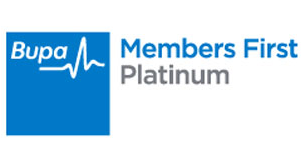At Kedron Family Dental, we offer natural-looking implant-supported dentures that don’t slip and help to eliminate discomfort in the mouth.
Contents
- 1 Implant-Supported Dentures
Implant-Supported Dentures

What is implant-supported dentures?
Implant-supported dentures is a type of teeth replacement treatment that combines dentures with dental implants for increased stability and support while still allowing for the dentures to be taken in and out of the mouth.
Traditional dentures rest on the gums and rely on adhesives or suction to stay in place. Our implant-supported dentures, however, are anchored to dental implants surgically placed in the jawbone, helping keep your teeth stabilised and in place.


Here’s how the process typically works
Initial Consultation: Meeting Your Implant Dentist
All our implant treatment begins with a consultation with the implant dentist . During this visit, your oral health and overall medical history will be assessed. X-rays or other imaging will also be taken to evaluate the condition of your jawbone and determine your suitability for dental implants. Your implant dentist will discuss your treatment options, answer any questions you may have, and create a personalised treatment plan based on your specific needs.
First Surgery: Placing Implants in the Jawbone
Now that the treatment plan is established, the first surgery involves placing the dental implants into the jawbone. This is typically done under local anaesthesia, and the number of implants depends on factors such as the jaw’s condition and the type of denture being used. The implants are strategically placed to provide optimal support and stability for the denture.
Second Surgery: Exposing Implant Heads
After a healing period, during which the implants integrate with the jawbone (osseointegration), a second surgical procedure may be necessary to expose the implant heads. This step involves creating small incisions in the gum tissue to reveal the tops of the implants. The purpose of this is to prepare the implants for the attachment of abutments in the next phase.
Denture Try-In and Insertion
With the implants now in place and the healing process complete, the focus turns to the making and fitting of the custom denture. The implant dentist will take impressions of your mouth and create a denture that fits securely onto the implant abutments. We use a try-in phase so that we can ensure a proper fit, comfort, and aesthetics. This way we can make the necessary adjustments where needed. Once the denture is finalised, it is then securely attached to the implants.
Post-Care
Following the completion of your implant-supported dentures, it is important to maintain dental care to ensure the longevity and success of your new teeth. Patients are provided with instructions on oral hygiene practices and care for their new prosthetic. Our team will also schedule regular follow-up appointments to monitor the implant-supported denture’s stability, assess your overall oral health and address any concerns or adjustments needed.
Our Health Funds







Why Choose Us
Our dental team at Kedron Family Dental has extensive experience in placing implant-supported dentures, catering to patients with diverse and unique dental cases.
Our commitment to personalised care ensures that all our patients receive individually-tailored solutions, making us a trusted choice for comprehensive and experienced dental services.
We’re proud to have helped our patients achieve new, confident smiles through our teeth replacement services.
Do implant-supported dentures come out?
Two primary categories of implants exist: removable (implant-supported dentures) and fixed. Each offers distinct advantages.
Implant-Supported Dentures
Implant-supported dentures, as the name suggests, can be taken out for cleaning and maintenance. These dentures are securely attached to dental implants using various mechanisms such as ball attachments, locator attachments, or bar attachments. While the denture firmly snaps onto the implants, it can be easily removed by the wearer for regular cleaning and hygiene practices. This removable feature simplifies oral care routines, allowing individuals to maintain optimal oral hygiene by cleaning both the denture and the supporting implants thoroughly. It also provides the flexibility to clean hard-to-reach areas. Additionally, implant-supported dentures may offer a cost-effective alternative for those seeking the benefits of implant stability without the permanence of a fixed prosthesis.
Fixed Dental Implants
Fixed dental implants is a teeth replacement option where the teeth are permanently attached to the jaw, creating a stable and secure foundation for the prosthetic teeth. These teeth are affixed to the implants using abutment screws. The result is a restoration that closely mimics the feel and function of natural teeth. Fixed implants eliminate the need for daily removal, offering the convenience of a permanent solution. While the cleaning process may involve specialised oral hygiene practices, the absence of daily removal contributes to increased comfort and confidence for individuals seeking a more permanent tooth replacement option.
The difference between All-on-4 and implant-supported dentures
“All-On-4” and “implant-supported dentures” are both terms used in the field of dental prosthetics to describe solutions that combine dental implants with dentures. While they share the common goal of providing a stable and secure option for individuals with missing teeth, there are key differences between the 2 approaches.
Number of Implants
All-On-4: This technique involves the placement of 4 dental implants in a specific configuration within the jawbone. These implants are strategically placed to maximise support and stability for a full arch of teeth.
Implant-Supported Dentures: The number of implants used in implant-supported dentures can vary. It may involve more than 4 implants, and the exact number depends on such factors as jawbone health, the type of denture, and your specific needs.
Implant Placement and Angulation
All-On-4: The 4 implants used in the All-On-4 technique are often placed at specific angles to take advantage of available bone and minimise the need for bone grafting. This approach aims to provide stability even in areas where bone volume might be limited.
Implant-Supported Dentures: The placement and angle of implants in implant-supported dentures can vary based on individual factors and the overall treatment plan. It may involve a more customised arrangement of implants to address specific jawbone conditions.
Immediate Loading
All-On-4: In some cases, All-On-4 procedures allow for the immediate loading of a temporary denture just days after the implant placement surgery. This can be advantageous for patients who desire a quicker transition to a functional set of teeth.
Implant-Supported Dentures: While immediate loading is possible in certain implant-supported denture cases, it is not a universal feature. The decision to load the denture immediately depends on factors such as implant stability, bone quality, and the overall treatment plan.
Treatment Time and Process
All-On-4: All-On-4 is often promoted as a solution that can reduce the overall treatment time compared to traditional implant approaches. In many cases, complete teeth replacement surgery can take just 4-7 days to complete.
Implant-Supported Dentures: The treatment time for implant-supported dentures can vary based on individual factors, including the need for additional surgical steps, such as bone grafting or multiple implant placements. The overall process may take longer than All-On-4 in some cases.
What our patients say



Kedron Family Dental
1/138 Gympie Rd,
Kedron QLD 4031, Australia
Public Transport
The clinic is conveniently located just a 2-minute walk from Stop 25- Leckie Road on the busy 370 bus route. Free on-site parking available.


